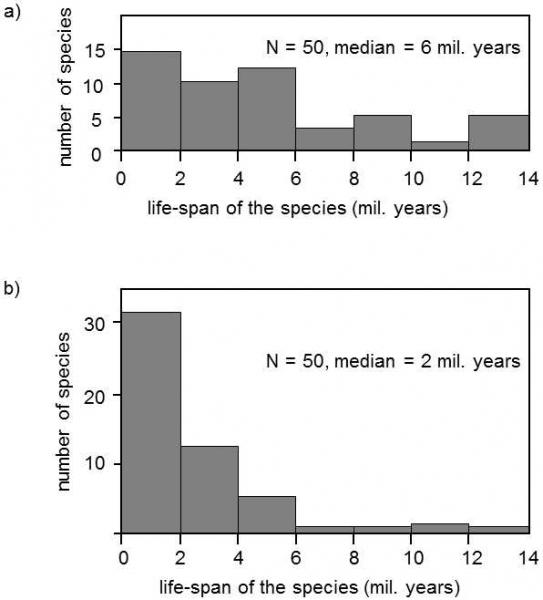XXII.6.4 Marine species of animals with planktonic larval stages die out more slowly than species with direct life cycles
Analysis of the extensive data set relating to marine bivalves and snails has shown that, at times of background extinction, species with planktonic larvae had much smaller extinction rates than species with direct life cycles (Jablonski 1986)(Fig. XXII.10). The two types of organisms can be distinguished

Fig. XXII.10 Ecological selectivity of extinction. The graph depicts the distribution of the periods of existence of the individual species of marine snails in the periods during which mass extinction did not occur. Graph (a) depicts species with planktonic larvae; graph (b) shows species without planktonic larvae. During periods of mass extinction, the differences between the survivals of the two ecological types of snails disappeared; for example, an identical 39% of species with planktonic larvae and species without planktonic larvae survived the mass extinction at the end of the Cretaceous. According to Jablonski (1986).
on the basis of morphological traits.It is not entirely clear whether this long-term trend is connected with the greater rate of speciation in species with direct life cycles, i.e. with greater spatial structuring of the population, or with the greater geographic ranges of species with planktonic larvae.It is characteristic that the differences in the average time of survival of groups of organisms disappears at least in some mass extinction events, for example during the mass extinction at the boundary between the Mesozoic and Tertiary (Jablonski 1986).
